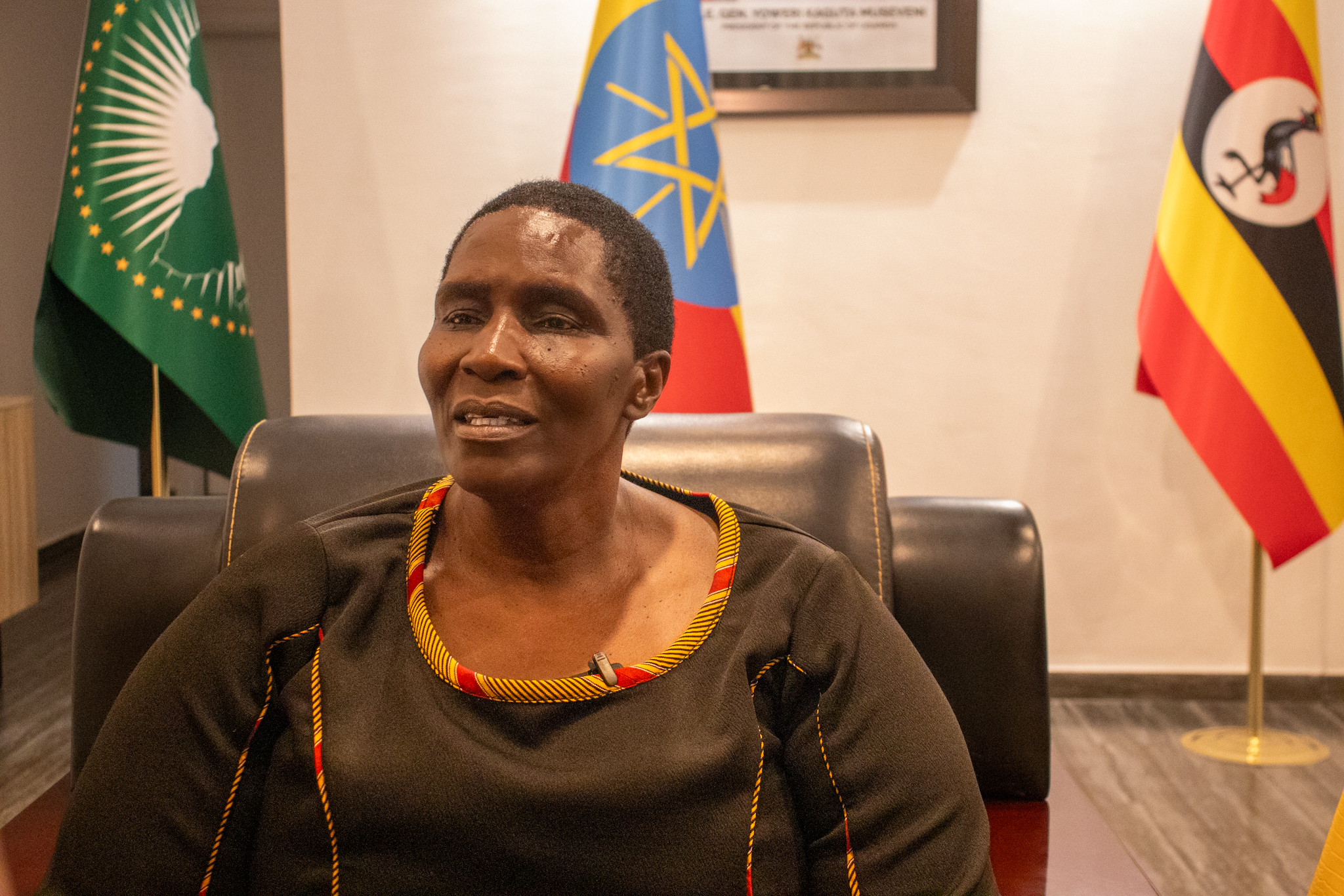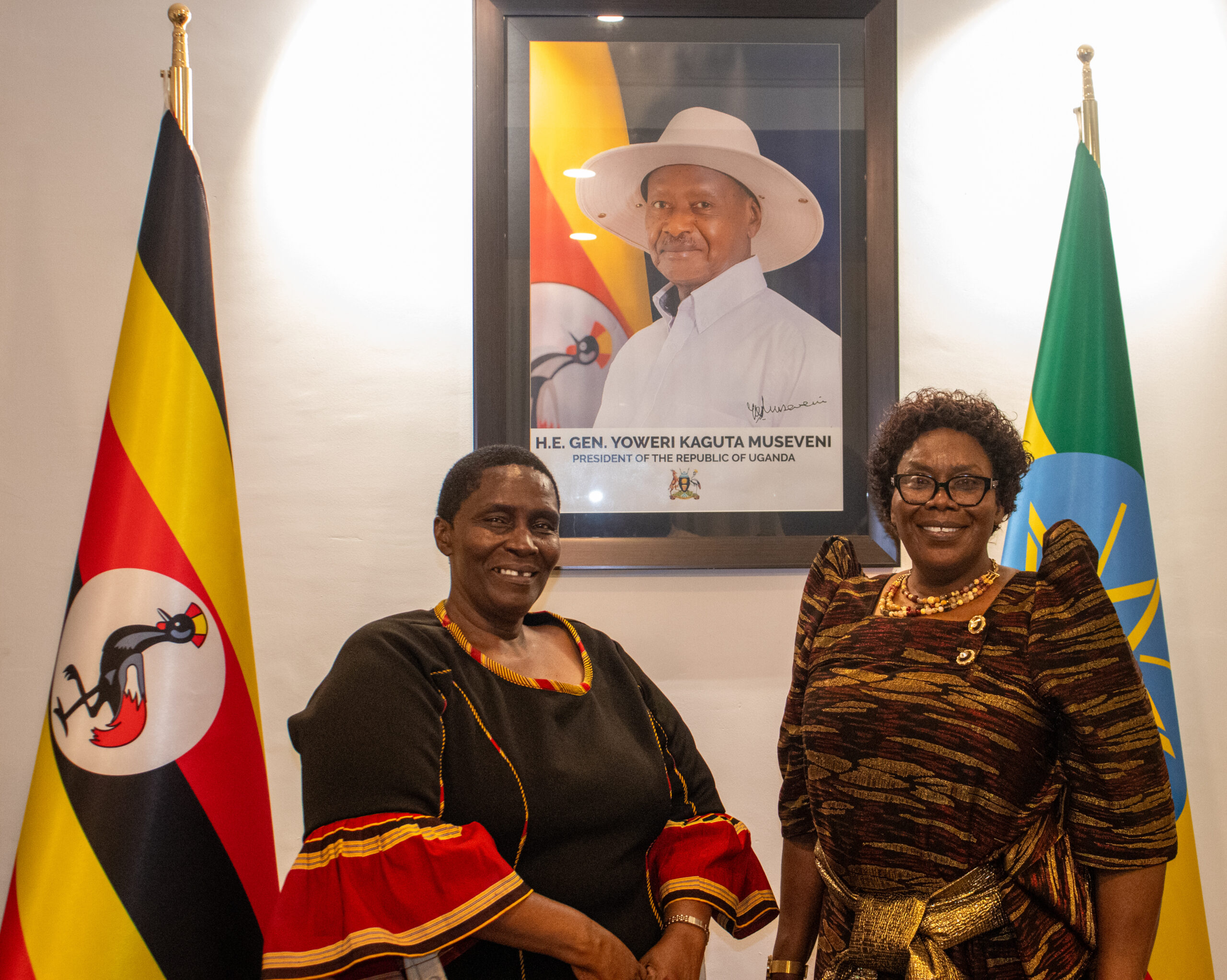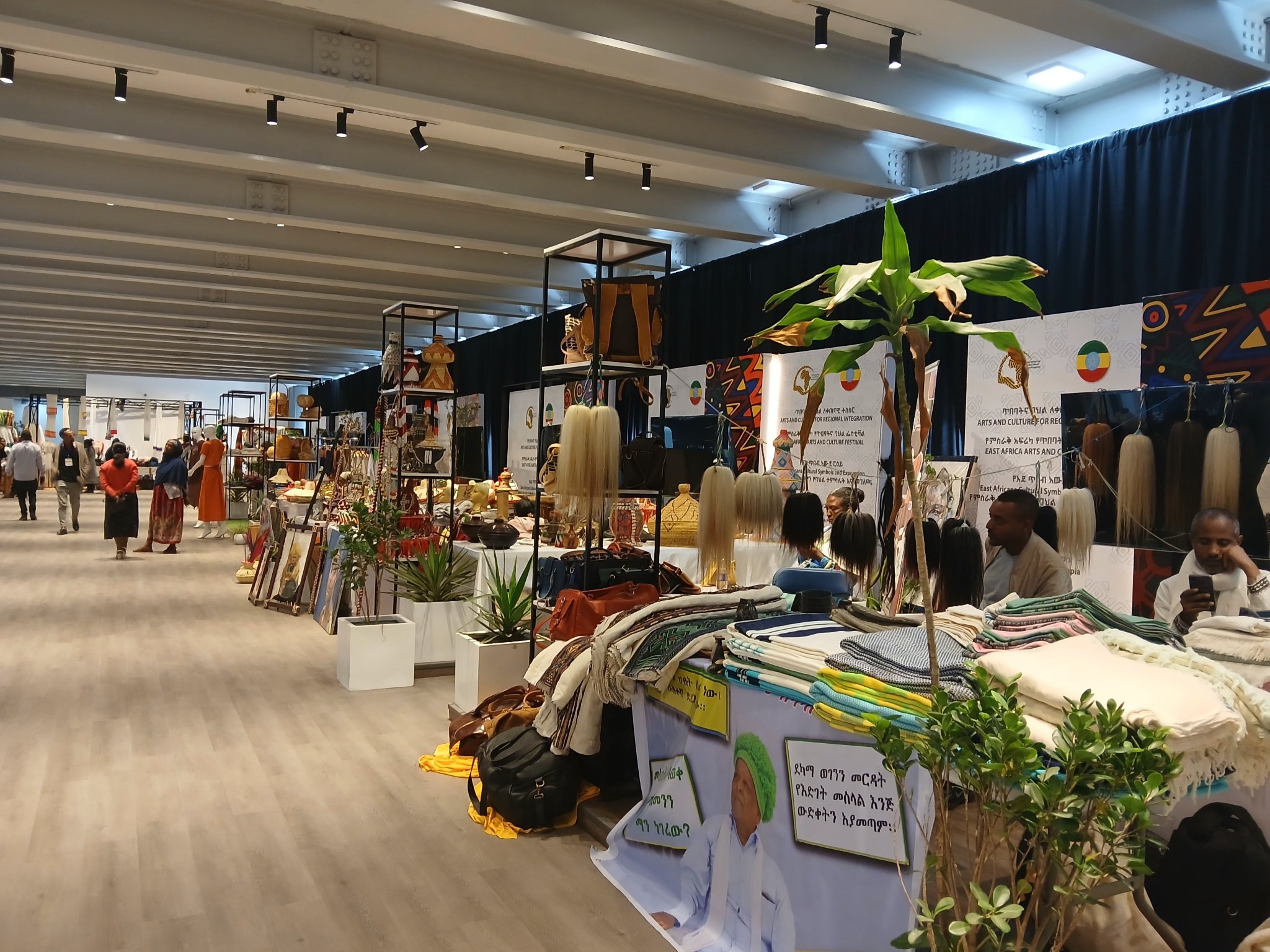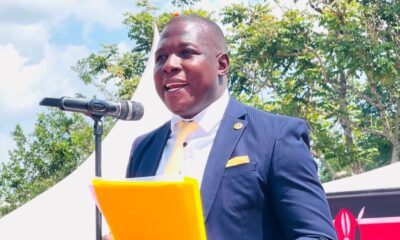Published
2 months agoon
By
Ugdiplomat
By Alex Masereka Joel
Ethiopia played host to the East Africa Arts and Cultural Festival in Addis Ababa from 20th-24th March.
The colorful event, brought together countries in the region including; Uganda, Democratic Republic of Congo, Rwanda, Burundi, Tanzania, Kenya, South Sudan, Somalia, Djibouti and the host nation.
Uganda sent a delegation of 22 people led by State Minister Hon Grace Hellen Asamo, State Minister for Disability Affairs under the Gender Ministry.

Hon Grace Asamo Helen (L) with Ambassador Rebecca Amuge Atengo,Uganda’s permanent representative to the African Union at Uganda’s embassy in Addis Ababa. PHOTO BY ALEX MASEREKA JOEL
The five-day festival featured; dance, traditional music, artifacts as the participating countries put on show their unique cultures.
A day before the closing ceremony, ministers from participating countries met and agreed on a draft document to boost arts and culture in the region.
This reporterhad a one-on-one with Minister Asamo in Addis Ababa on this and lessons from the event.
AM: Hon. Minister, thank you for your time. As rhe event concludes, one of the key outcomes was a draft document aimed at boosting arts and the creative industry in the region. Can you shed more light on this document and what it seeks to achieve?

Uganda’s representatives at the East Africa Arts and Cultural festival in Addis Ababa performing on Saturday, 22 March 2025. Photo by Alex Masereka Joel
Hon. Asamo Helen Grace: Thank you. Yes, during the festival, we engaged in discussions on how culture can play a fundamental role in regional integration, economic empowerment, and peacebuilding. The draft document outlines a framework for cooperation among participating countries—Uganda, Rwanda, Burundi, the DRC, Somalia, Ethiopia, and Djibouti—on how we can strengthen our cultural sectors and use arts as a bridge for unity and development.
AM: What are some of the specific areas covered in this framework?
Hon. Asamo Helen Grace: The document focuses on several key areas. First, it emphasizes the need for cross-border cultural exchanges and collaborations among artists, musicians, and performers. We recognize that despite political borders, many of our communities share languages, traditions, and artistic expressions. Enhancing cultural exchanges will foster unity and deepen our regional bonds.
Second, we discussed strategies to support the creative economy. Arts and culture are powerful industries that can generate employment for young people. We are looking at policies that promote investment in the arts, provide funding for cultural projects, and support creative entrepreneurs.
Another crucial aspect is leveraging culture to promote peace and security. In many of our countries, music, dance, and storytelling have historically played roles in conflict resolution and social cohesion. We want to formalize this by incorporating cultural initiatives into peace-building efforts.
AM: That’s quite comprehensive. Were there any commitments regarding policy support or government investment in these initiatives?
Hon. Asamo Helen Grace: While this was a draft, the discussions pointed towards the need for national governments to allocate more resources to cultural preservation and creative industry development. We agreed to advocate for policies that protect and promote cultural heritage, including safeguarding indigenous knowledge and traditional practices.
Additionally, there was consensus on the need for structured platforms—such as annual regional festivals or cultural summits—where artists and policymakers can engage regularly to track progress and share best practices.
AM: Given that this was a draft, what are the next steps?
Hon. Asamo Helen Grace: The next steps involve refining the document based on feedback from our respective governments. Once finalized, it will serve as a guiding framework for cultural cooperation in the region.

The East Africa Arts and Cultural Festival in Addis Ababa brought together countries from the region to celebrate their rich heritage. PHOTO BY ALEX MASEREKA JOEL
AM: Lastly, what message would you like to send to Ugandans regarding the role of culture in national and regional development?
Hon. Asamo Helen Grace: I urge Ugandans to embrace culture not just as a means of identity but as a tool for economic growth, unity, and peace. Our traditions and artistic expressions are valuable assets that can strengthen our communities and position Uganda as a leader in cultural diplomacy. Let’s preserve and promote our heritage while also using it as a means to create opportunities for the next generation. I thank the embassy of Ethiopia in Uganda and ambassador Etsegenet Bezabih Yimenu and our ambassador in Addis Ababa for their support which made our trip a success.


UAE’s Aster DM Healthcare to Donate Hitech Mobile Medical Clinic to Uganda


Terror Plot Foiled! UPDF Kills Two Terrorists With Explosives In Munyonyo


International Contact Group Welcomes DRC-Rwanda Declaration, Calls for Immediate Ceasefire and Respect for Territorial Integrity


Dr. Lumumba Calls for Socioeconomic Integration and Border Reforms at Kenya’s Madaraka Day Celebrations


REVEALED! NRM Honchos Position Selves as Museveni Prepares National Election Taskforce


SUPER GLUE! Fear As NRM Aspirants Delay To Facilitate Influencers
